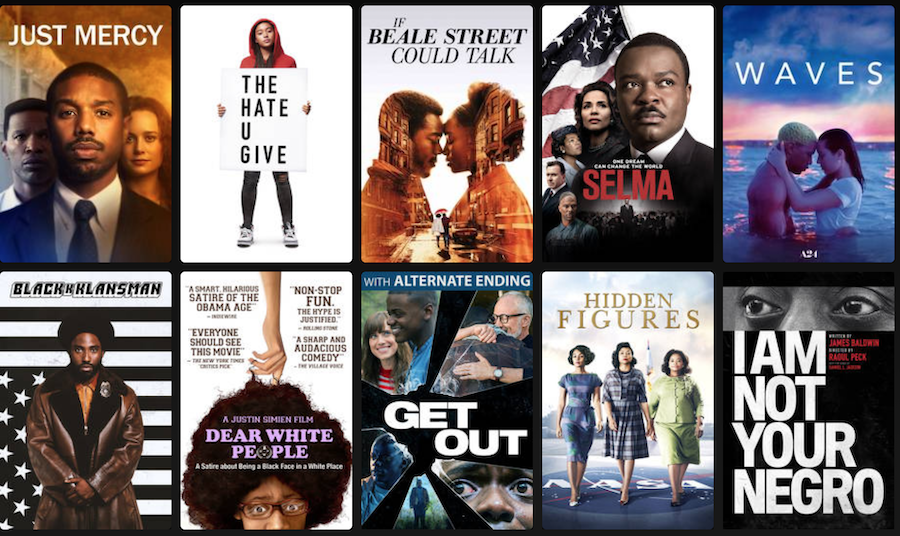The Power of Movies How They Impact Our Emotions and Perception
Explore how movies, like 'The Power of Movies,' influence emotions and perception. Discover the transformative power of cinema

The Influence of Movies on Our Emotions and Perceptions
Movies have long been a source of entertainment and storytelling, captivating audiences worldwide for over a century. Beyond their role as mere forms of entertainment, movies have a profound impact on our emotions and perceptions. This influence extends beyond the boundaries of the screen, shaping our understanding of the world and ourselves. In this essay, we will explore the multifaceted ways in which movies affect our emotions and perceptions, examining how they can evoke a wide range of feelings and alter our outlook on life.
Emotional Impact of Movies
Elicitation of Emotions
One of the most apparent ways in which movies impact our emotions is by eliciting a wide spectrum of feelings. Filmmakers employ various techniques, such as storytelling, cinematography, music, and acting, to create emotional resonance with the audience. Whether it's tears of joy, laughter, fear, or sadness, movies have the power to make us feel deeply. For instance, a heartwarming scene in a family drama can bring tears of empathy, while a well-executed thriller can induce nail-biting suspense.
Empathy and Compassion
Movies have a unique ability to foster empathy and compassion by allowing us to immerse ourselves in the lives and experiences of fictional characters. Through these characters, we can relate to situations and emotions that we may not have encountered in our own lives. This heightened sense of empathy can lead to a more compassionate outlook on the world, as we become more attuned to the struggles and triumphs of others.
Catharsis
The concept of catharsis, originally proposed by Aristotle, suggests that experiencing intense emotions in a controlled environment, such as through movies, can be psychologically beneficial. Watching characters navigate their own emotional journeys can help viewers process their own feelings and find release from pent-up emotions. This therapeutic effect of movies can contribute to emotional well-being and stress relief.
Perceptual Impact of Movies
Shaping Cultural Perceptions
Movies are a reflection of culture and society, and they play a pivotal role in shaping our perceptions of various social and cultural issues. They can introduce us to different lifestyles, traditions, and perspectives, helping to broaden our understanding of the world. For instance, movies that explore diverse cultures can challenge stereotypes and promote cultural awareness.
Influence on Social Norms
Movies also have the power to influence our perceptions of social norms and values. Portrayals of relationships, gender roles, and ethical dilemmas in films can influence our own beliefs and behaviors. For example, movies that depict strong, independent female characters can inspire viewers to challenge traditional gender roles, while films addressing important societal issues can spark conversations and activism.
Altering Perceptions of Reality
Movies have the ability to blur the lines between fiction and reality, altering our perceptions of the world around us. Special effects, CGI, and advanced cinematography techniques can create immersive experiences that challenge our sense of what is possible. Science fiction films, for instance, can expand our imaginations and make us contemplate the future of technology and humanity.
The Power of Storytelling
Narrative Impact
Movies are a powerful medium for storytelling, and stories are a fundamental way humans communicate and make sense of the world. The narratives presented in movies can inspire, educate, and transform. Whether it's a rags-to-riches tale, a hero's journey, or an exploration of the human condition, movies provide narratives that resonate with our own life experiences and can guide us in our personal journeys.
Emotional Resonance
Well-crafted stories in movies have the ability to resonate deeply with audiences. They tap into universal themes and emotions that are relatable to people from various backgrounds. This emotional resonance can leave a lasting impression and influence our perceptions of life and the human experience. For example, a coming-of-age film may remind us of our own growth and maturation.
Escapism and Entertainment
Temporary Escape
Movies offer a form of escapism that allows us to momentarily escape the challenges and complexities of our daily lives. They transport us to different worlds, eras, and dimensions, offering a reprieve from our own reality. This temporary escape can be therapeutic, providing relief from stress and offering a mental break.
Entertainment and Enjoyment
Movies are primarily a form of entertainment, and they play a significant role in our leisure activities. The enjoyment derived from watching a film, sharing the experience with others, and discussing it afterward contributes to our overall well-being and social connections. Movies provide a common ground for people to connect and bond over shared interests.
The Power of Cinematic Techniques
Visual Impact
Cinematic techniques, including cinematography, editing, and visual effects, play a pivotal role in how movies impact our emotions and perceptions. A well-framed shot, a dramatic camera angle, or the clever use of lighting can evoke powerful emotions and enhance our understanding of the story. For example, a sweeping panoramic shot can instill a sense of awe, while a tight close-up can intensify intimacy and tension.
Sound and Music
Sound design and music are equally crucial in shaping our emotional responses to movies. The right soundtrack or sound effects can elevate a scene, making it more memorable and emotionally charged. A haunting melody can create a sense of melancholy, while a rousing score can inspire courage and triumph. Movies often use music to convey emotions that words alone cannot express.
Psychological and Cognitive Effects
Cognitive Processing
Movies engage our cognitive processes in complex ways. They require us to follow narratives, make connections, and analyze characters' motivations and behaviors. This cognitive engagement can enhance our critical thinking skills and our ability to empathize with diverse perspectives. As we decode the intricacies of a movie's plot, we become more adept at understanding the complexities of the real world.
Influence on Memory and Perception
Movies have the potential to shape our memory and perception of events and individuals. When we see a historical event depicted in a film, it can become our primary reference point for that event. This highlights the responsibility of filmmakers to accurately represent historical facts and figures, as movies can perpetuate misinformation or stereotypes.
The Role of Genre
Different movie genres have unique ways of impacting our emotions and perceptions. For example:
- Drama explores the complexities of human relationships and emotions, often leading to introspection and self-reflection in the audience.
- Comedy provides laughter and light-heartedness, offering relief from stress and fostering a positive outlook.
- Horror plays on our fears and anxieties, allowing us to confront and process our darkest emotions in a controlled environment.
- Science fiction challenges our understanding of the world and the possibilities of the future, encouraging us to contemplate the implications of scientific and technological advancements.
- Documentaries offer a glimpse into real-world issues and events, prompting us to engage with important societal topics and encouraging action.
Ethical Considerations
While movies have the power to entertain, educate, and inspire, there are also ethical considerations to be mindful of. Filmmakers bear a responsibility to portray sensitive topics and diverse perspectives with respect and accuracy. Misrepresentation or harmful stereotypes can perpetuate biases and misconceptions. Furthermore, the impact of graphic violence or disturbing content in movies can have lasting psychological effects on viewers, underscoring the importance of content warnings and age-appropriate viewing.
Movies are a powerful medium that can deeply impact our emotions and perceptions. They have the ability to elicit a wide range of emotions, foster empathy, and provide catharsis. Additionally, movies shape our cultural and social perceptions, influence our beliefs and behaviors, and alter our sense of reality. Through storytelling and emotional resonance, they offer guidance and insight into the human experience. Ultimately, movies serve as a means of both escapism and entertainment, enriching our lives in numerous ways. As we continue to engage with this influential art form, it is important to recognize and appreciate the profound role that movies play in shaping our emotional and perceptual landscapes.
What's Your Reaction?
















